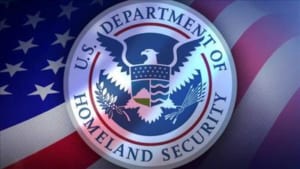To protect the health of U.S. citizens, permanent residents, and other people in the United States from communicable diseases, intending immigrants to the United States are required to be vaccinated against certain diseases to receive an immigrant visa. The diseases currently required to be vaccinated against are:
- Diphtheria
- Tetanus
- Pertussis
- Polio
- Measles
- Mumps
- Rubella
- Rotavirus
- Haemophilus influenzae type b (Hib)
- Hepatitis A
- Hepatitis B
- Meningococcal disease
- Varicella
- Pneumococcal disease
- Influenza
- COVID-19
The U.S. Centers for Disease Control and Prevention determines which vaccines immigrant visa applicants are required to receive based on specific criteria:
- The vaccine must be an age-appropriate vaccine, as recommended by the Advisory Committee on Immunization Practices for the general U.S. population; and
- At least one of the following criteria must be met:
- The vaccine must protect against a disease that has the potential to cause an outbreak; and,
- The vaccine must protect against a disease that has been eliminated in the United States or is in the process of being eliminated in the United States.
While the vaccines from the list above are required for a given applicant, many vaccines have minimum age requirements and some require months to years to complete. Therefore, it is usually not possible for applicants to receive all vaccinations for the diseases listed above prior to departure, and applicants are instead required to receive from the doctor during the medical examination at least one dose of each age-appropriate vaccine for which the applicant is not currently up to date. The doctor should counsel the applicant during their medical evaluation about the importance of completing the series of vaccines after arrival in the United States.
If the applicant is up to date on the required vaccines listed, no additional vaccines are required to be given at the time of the medical exam.
The doctor must review all vaccination records presented by the applicant and, if documentation appears valid, record the vaccination history and vaccines given during the medical evaluation on the U.S. Department of State Vaccination Documentation Worksheet (DS-3025). The applicant should be advised that the DS-3025 is the applicant’s vaccination record, and an extra copy must be provided to the applicant. The applicant will need to provide a copy of the DS-3025 to healthcare providers, schools, and other institutions after arriving in the United States.
If you have questions about the vaccination requirements to immigrate to the U.S., contact us at info@enterlinepartners.com and speak with a U.S. immigration attorney in Ho Chi Minh City, Manila and Taipei.
ENTERLINE & PARTNERS CONSULTING
Ho Chi Minh City, Vietnam Office
Suite 601, 6th Floor, Saigon Tower
29 Le Duan Street
Ben Nghe Ward, District 1
Ho Chi Minh City, Vietnam
Tel: +84 933 301 488
Email: info@enterlinepartners.com
Facebook: Enterline & Partners – Dịch vụ Thị thực và Định cư Hoa Kỳ
Website: http://enterlinepartners.com
Manila, Philippines Office
Tel: +632 5310 1491
Email: info@enterlinepartners.com
Facebook: Enterline and Partners Philippines
Website: https://enterlinepartners.com/language/en/welcome/
Copyright 2021. This article is for information purposes only and does not constitute legal advice. This article may be changed with or without notice. The opinions expressed in this article are those of Enterline and Partners only.








